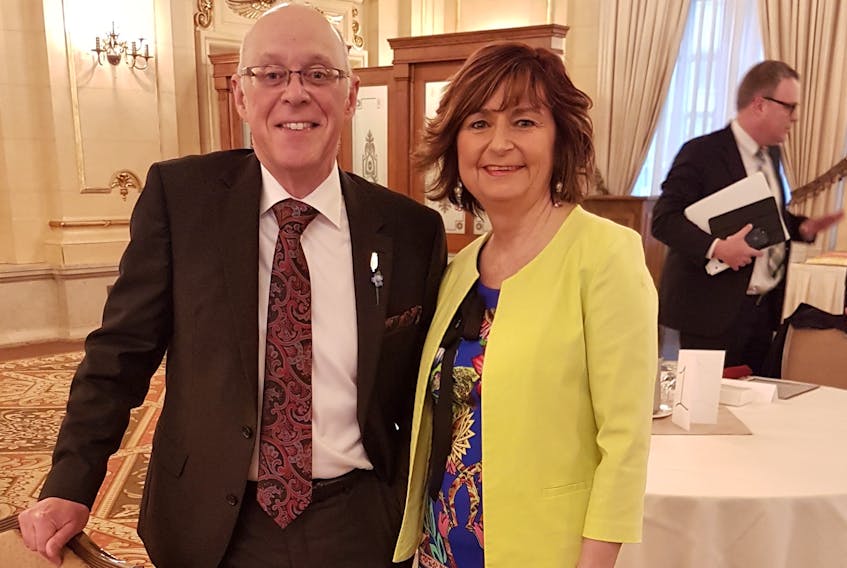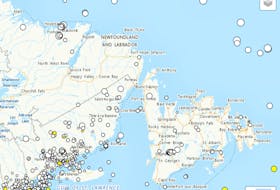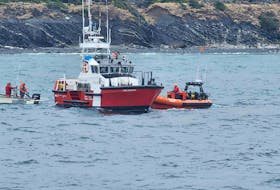Newfoundland and Labrador needs a plan to help nurse practitioners stay and work in the province, says nurses’ union president Debbie Forward.
The Registered Nurses' Union Newfoundland and Labrador (RNUNL) was part of the group of the Canadian Federation of Nurses Unions (CFNU), which released Friday a study on the recruitment and retention of nurse practitioners. They briefed the study to the country’s health ministers, who were at a summit in Winnipeg, Man.
Among their duties, nurse practitioners across the country diagnose and treat illness, prescribe medication, order and interpret lab and diagnostic tests and can perform certain procedures.
Forward said it was a positive that Newfoundland and Labrador Health Minister John Haggie turned up at the breakfast briefing and she hopes to have future meetings with him to flesh out an expanded role for nurse practitioners in this province.
There are currently 120 employed in the province, and about another 30 who are licensed.
The trouble is unless employed by a health authority or otherwise funded by government, a nurse practitioner must charge the public a fee if they set up on their own.
“To have to pay out of pocket. That is a huge barrier to 95 per cent of people in the province,” Forward said.
“If we really want nurse practitioners to be part of primary health care … they have to be funded through the public purse.”
Forward said boosting the nurse practitioner program will help the health care system, especially in areas where patients don’t have access to a family doctor. If those patients are left untreated, they will become sicker and that will cost the system more money, she said
“The goal is for government to have a specific strategy around recruitment and retention,” she said, noting the study underlined the nurse practitioners’ desire for continual professional development whether they practice in rural or urban settings.
Related story:
Forward, Haggie at odds over Eastern Health changes
If it is a remote setting, that development is even more critical, she said.
The study by the Canadian Federation of Nurses Unions says about one in six Canadians do not have a regular health care provider, and certain groups, including Indigenous peoples and seniors, continue to experience higher rates of chronic diseases.
Among the recommendations are that governments harmonize NPs’ salaries across all health care settings within each province/territory to bridge the wage gap that currently exists.
The Canadian Federation of Nurses Unions is also calling on the provincial and federal governments to take steps to better integrate nurse practitioners into the health care system, fund permanent employment positions for NPs in a variety of settings to improve access to high quality health care, provide an isolated area housing allowance and work with indigenous communities to expand and recruit NPs from, and for, Indigenous communities.
Medium income for full-time nurse practitioners in Newfoundland and Labrador is $101,622 and part-timers make $45,000, according to the study. They are the third lowest paid, higher than New Brunswick and Prince Edward Island. The median income nationally is $103,000 full time and $70,000 part time.
The lowest scale of nurse practitioners make about 4.5 per cent higher than the highest-paid registered nurse scale.









